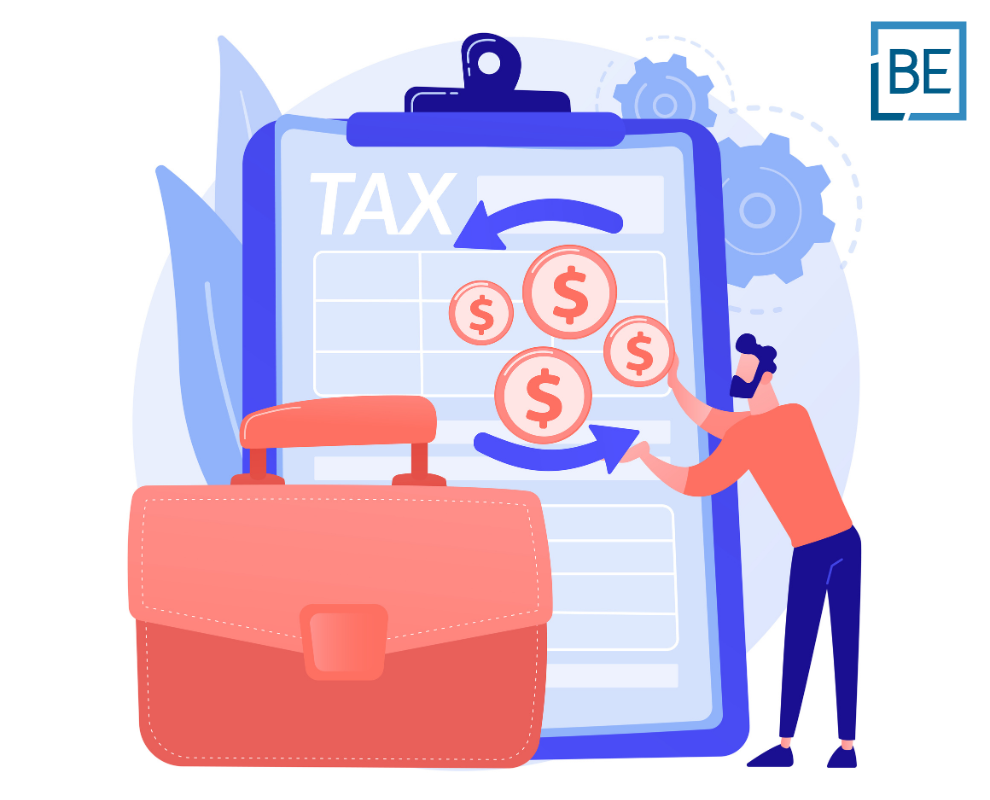Belaws Home ›› Thailand ›› Blog ›› Thailand to Introduce Stricter Regulations for Taxing Foreign Income
tax
Thailand to Introduce Stricter Regulations for Taxing Foreign Income
21/09/2023
The Thai government has announced plans to introduce stricter regulations for taxing foreign income earned abroad. It is believed these new rules have been introduced due to the country’s commitments to international tax standards through agreements like the Global Forum on Transparency and Exchange of Information for Tax Purposes.
Starting January 1, 2024, all income earned abroad and remitted into Thailand will be subject to personal income tax, regardless of whether earned through work or business activities.
Key points
- Foreign-sourced income remitted to Thailand from January 1, 2024, will be subject to personal income tax (some exceptions apply)
- This removes the provision that exempted income earned from the previous tax year from being remitted to Thailand
- Thailand has a progressive tax system for personal income tax; the rates range from 0% to 35%.
What are the current laws for taxing foreign income in Thailand?
Per Section 41 in the Revenue Code, Thai tax residents must pay Thai personal income tax on income earned from offshore sources when repatriating it to Thailand. However, Resolution No. 2/2528, issued by the Committee for the Consideration of Legal Issues and Appeals or Petitions of the Revenue Department in 1985, announced that any offshore income or assets brought into Thailand after the year of its accrual would not be subject to personal income tax.
Therefore, Thai tax residents are currently only liable for Thai personal income tax on offshore income if they repatriate that income to Thailand within the same calendar year it was received.
This rule has made Thailand a really attractive option for Thai and foreigners alike who rely upon this exemption not to have their foreign sources of income taxed. But this will change in 2024.
What are the new income tax rules for taxing foreign income in Thailand?
The Thai Revenue Department recently issued a new order, No. Por. 161/2566 re: Income Taxation, stating that if you earn income in another country and remit it into Thailand, you must include it when calculating your yearly income taxes. This will apply to all income, regardless of whether it was earned in the previous year or not.
However, it is important to note that this new regulation applies only to tax residents in Thailand, exempting tourists and short-term workers.
Please note that these new rules come into effect on the 1st of January 2024; any income remitted into Thailand after this date will be subject to income tax.
What has changed?
Under the previous tax laws, foreign income were already required to be taxed as personal income. However, individuals would be exempt from paying taxes on foreign earnings if they remit the income to Thailand after the current tax year has ended. This is no longer the case, and all foreign income will be subject to income tax.
Are there any exemptions to the new personal income tax rules in Thailand?
It’s important to highlight that when Thai tax residents bring offshore-sourced income into Thailand, they are exempt from Thai personal income tax if the income falls into one of the following categories:
- Non-taxable income, such as proceeds from selling offshore securities or assets without gain.
- Income exempted from Thai personal income tax under the Revenue Code, such as income from insurance.
- Foreign income not repatriated in Thailand
Who are considered tax residents in Thailand?
Individuals will be considered tax residents if they have been in Thailand for at least 180 days or more in a calendar year.
Please note these 180 days do not need to be consecutive; they can be accumulated over the tax year.
What happens if you have already paid tax on your income abroad?
One potential concern arising from this new regulation is the issue of double taxation. Individuals who have already paid taxes on their income in a foreign country may face being taxed again on the same income in Thailand. However, Thailand has established double tax treaties with many foreign countries to prevent such double taxation.
During a recent press conference, Mr. Winit Wisetsuvarnabhumi, Deputy Director-General of the Revenue Department, stated that if an individual earning income has already paid taxes in their country of income origin, and if a Double Tax Agreement exists between Thailand and that particular country, the taxpayer can apply the taxes paid in the country of origin as a tax credit, by the terms specified in the relevant Double Tax Agreement.
For more information about Double Taxation Agreements, please see here.
How do the new income tax rules in Thailand affect retirement visa holders?
As stated above, should the retirement visa holder remit money from a country with an active Double Tax Treaty with Thailand, they can claim a tax credit using the already paid taxes.
However, if no Double Tax Treaty exists, any income may be subject to income tax under the new rules.
How do Thailand’s new income tax rules affect LTR and Elite visa holders?
At the time of writing, it is understood that since the tax incentives offered to holders of the LTR visa were provided by or must be applied for and approved by the Revenue Department, they may be exempted from the new rules.
Please note that there is no official news from the government relating to this, and it could be subject to change.
How is income tax calculated in Thailand?
Thailand makes use of a progressive tax system for personal income tax; the rates of taxation can be seen below:
| Taxable Income | Tax Rate |
| 0 – 150,000 | Exempted |
| 150,001 – 300,000 | 5% |
| 300,001 – 500,000 | 10% |
| 500,001 – 750,000 | 15% |
| 750,001 – 1 million | 20% |
| 1,000,001 – 2 million | 25% |
| 2,000,001 – 5 million | 30% |
| 5,000,001 or more | 35% |
How can Belaws help?
For more information about employment law in Thailand, why not talk to one of our experts now?
Please note that this article is for information purposes only and does not constitute legal advice.
Our consultations last for a period of up to 1 hour and are conducted by expert Lawyers who are fluent in English, French and Thai.
Consultations can be hosted via WhatsApp or Video Conferencing software for your convenience. A consultation with one of our legal experts is undoubtedly the best way to get all the information you need and answer any questions you may have about your new business or project.
USD 150
Up to 1 hour
Online payment (Paypal or Credit card)
Legal consultation can be conducted in English, French or Thai
Legal consultations are handled by experienced lawyers from the relevant fields of practice
Frequently asked questions
Who is eligible for Thai Elite visa?
To be eligible for the Thailand Elite Visa, you must hold a valid foreign passport, have no deportation record in any country, and not have an overstay record in Thailand. Individuals from countries on the UN Sanction List, such as North Korea and Iran, do not qualify.
What is the 20-year elite visa in Thailand?
The Thailand Elite Visa offers a membership package called “Elite Superiority Extension” with a 20-year visa validity. It provides various benefits for an extended stay in Thailand.
How much does a Thai elite visa cost?
The cost of a Thailand Elite Visa varies based on the membership package. For example, the Elite Easy Access package costs THB 600,000 (approximately 17,000 USD), while the Elite Ultimate Privilege package costs THB 2,000,000 (approximately 57,000 USD).
Is Thai Elite visa worth it?
The Thailand Elite Visa offers a range of benefits, including multiple-entry visas, tax exemptions on foreign income, airport services, and more. Whether it’s worth it depends on your individual needs and preferences for staying long-term in Thailand.
How do I get a 10-year Thai visa?
You can get a 10-year Thai visa through the “Elite Family Alternative” or “Elite Privilege Access” membership packages offered by the Thailand Elite Visa program.
Can I buy a house in Thailand on elite visa?
While Thailand Elite Visa holders cannot work for a company in Thailand, they can engage in other investment activities, such as buying shares, investing in condominiums, or obtaining a driver’s license.
How much is Thailand elite residence?
The membership fees for the Thailand Elite Visa range from THB 600,000 (approximately 17,000 USD) to THB 2,000,000 (approximately 57,000 USD), depending on the chosen membership package.
Thailand retirement visa better than elite visa?
Both the Thailand Retirement Visa and the Thailand Elite Visa cater to different needs. The Retirement Visa is designed for retirees, while the Elite Visa offers a broader range of benefits for long-term stays.
What are the benefits of Thailand Elite visa?
The Thailand Elite Visa offers benefits like multiple-entry visas, tax exemptions on foreign income, airport services, elite personal assistance, limousine service, discounts on leisure activities, opening a bank account, and more.
Can I work in Thailand with a Thai Elite Visa?
No, Thai Elite Visa holders are not allowed to work for any company in Thailand. However, they can engage in other investment activities such as buying shares or investing in property.
Can I upgrade my Thai Elite Visa membership package?
Some membership packages are upgradeable, such as upgrading from the “Elite Easy Access” package to a 10-year or 20-year visa. However, specific upgrade options might vary.
Can I apply for a Thai Elite Visa if I’ve been previously deported from another country?
Applicants must not have a deportation record in any country. It’s important to review the eligibility requirements and consult with Belaws.
Can I bring my family with me under the Thai Elite Visa?
Yes, the “Elite Family Alternative” package, implies the possibility of including family members.
Related articles
Subscribe today
Subscribe today
To our newsletter for all the latest legal news
in South East Asia, Belaws updates and
special promotions on our services.
To our newsletter today for all the latest legal news in South East Asia,
Belaws updates and special promotions on our services.







